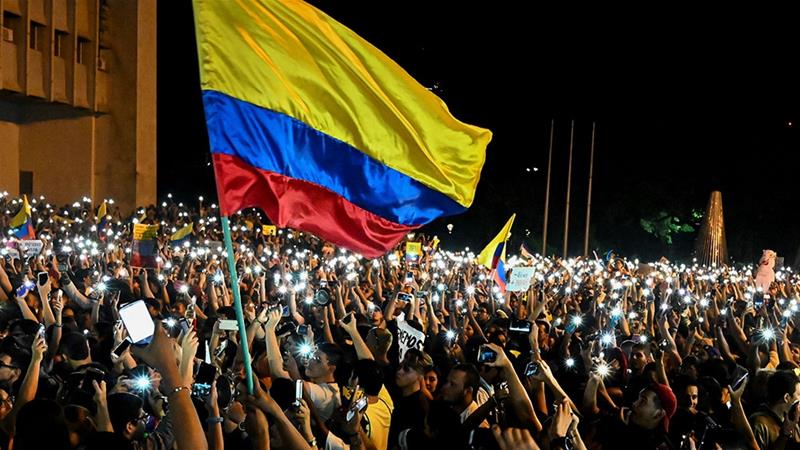RIO DE JANEIRO, BRAZIL – Triggered by the rape of a young indigenous girl by soldiers, Colombia faces mass protests. The weekend demonstrations were the largest since the start of quarantine because of the coronavirus pandemic on March 20th.
The protesters blame the Colombian state in particular for the systematic neglect of indigenous territories, human rights violations, the country’s militarization and the murder of FARC-EP activists and ex-combatants.

On Friday, Colombia’s armed forces announced the suspension of 31 soldiers accused of sexual abuse of minors. Earlier, the army’s commander, General Eduardo Zapateiro, admitted that 118 soldiers are currently under criminal and disciplinary investigation for sexual violence against minors. The 240,000-strong army has a long list of accusations of human rights violations.
However, the indigenous peoples and women’s rights organizations demand more than simply the punishment of perpetrators: in order to prevent further cases, the country must be demilitarized and military and police training reformed.
In many cities in the country, thousands of people – mainly women’s organizations – took to the streets over the weekend. They marched outside barracks and chanted in reference to the attacks against women and girls by the soldiers. They also criticized that the militarization of indigenous and small farming communities was adding to the violation of human rights.
The protesters were joined by thousands of LGBTI members who expressed their sadness over the death of transsexual Alejandra Monocuco in Bogotá. Participants drew particular attention to police violence against women and transgender people in urban areas. “Alejandra did not die, Alejandra was killed,” they chanted. This year alone, 16 transgender women have been murdered in Colombia. The messages #TransLivesMatter and #PoliceKillsUs were displayed on banners. Monocuco was a black, transsexual sex worker and HIV positive. She died in the hospital after being shot with rubber bullets by police officers. Eight officers on motorcycles and in three patrol cars were involved in the operation.
In Medellín, Colombia’s second largest city, the murder of a transperson also led thousands of people to the streets.
In rural Colombia, there are also frequent reports of the state violating farmers’ human rights. As a result, a caravan under the motto Marcha por la Dignindad (March for Dignity) has been traveling for days from the Southern Department of Cauca towards the capital Bogotá. The “march for dignity” is led by dozens of people from various communities in the southwest of the country.
Through this initiative, organizers want to draw attention to the murders of social movement activists and former guerrillas and call on the state to finally take protective measures. Another reason behind the protest is the new violent crisis triggered by various armed groups, which has recently struck the South American country. Coca farmers are particularly affected and are increasingly falling victim to the armed forces.
According to Jimmy Moreno, spokesperson for the nationwide organization Congreso de los Pueblos (People’s Congress), raising public awareness about the crisis is a major goal. The severe human rights situation is “a product of militarization and the strengthening of the neoliberal model”, he said. Activist José Milciades declared that the government of President Iván Duque is exploiting the state of emergency and compulsory quarantine imposed by the pandemic to “govern by decree” and to enforce decisions even in opposition to parliament.

